So, last Friday two weeks ago I left the gray-skied Netherlands for my big adventure to the United States. I was going to visit UC Berkeley for six whole weeks! I would be able to meet faculty from UC Berkeley and talk to them about my and their research. Before my departure I was, of course, nervous:
- I had a wish-list made for what to get for my research from this trip, would I be able to cross off everything on it?
- I would have to talk to many new people, every time explaining my research all over again and have it open for discussion
In this blogpost I want to share some of my experiences with you regarding these two points I just made.
My wish-list
It all started for real last Monday. I had my first meeting with my contact at UC Berkeley. In the 45 minutes I was in her office things went really fast; names of people I should really meet flew by, we discussed what I wanted to get from my stay at UC Berkeley, and I was suggested a book to read. After this meeting I soon realized that I probably won’t have to worry about checking off everything on my wish-list; it will probably get done. For, all the people whose names were mentioned during the meeting, would be told of my visit at UC Berkeley, which gave me an opening of contacting these people myself. Of course, this still gave me the, sometimes difficult, task of introducing myself a little over email, thinking of the reason why I would meet that specific person, and asking whether the person would have time to meet with me. Luckily, up until now everybody has responded positively. In addition, I have also visited some classes in the teacher education programs. And I am visiting some research group meetings. Thus, even after only two weeks, I can honestly say much on my wish-list has already been crossed off. I can start looking for some extra wishes :-).
I think what really helped in getting so far with my wish-list, is that I communicated it and I keep communicating (parts of) it to the people I meet with. For, they are the ones who can help me getting everything done. And although I now use this strategy on a visit abroad, I think this is very helpful in many different situations, also. I mean, if there is anything you want to do during your PhD, communicate it with the people around you. It is good if you want to find stuff out for yourself. I’m not saying you shouldn’t do that. But you will notice that with some help from others, you might get a little further, maybe the person you’ve just communicated your wishes to, knows just that specific person who can help you in achieving your goal.
Meeting new people everyday
The fact that I am crossing wishes off my wish-list, means that I have to meet new people everyday. That also means that over and over again, I have to explain my research. You would say that if I have to do that so often, it becomes easier and I can just hit the replay button that makes my brain tell my mouth to talk about my research. If only. It means that every time again, I look critically at what I am explaining and to whom. First of all, for almost everyone around here, I have to tell more about the context in which my research is taking place, than I would have to in the Netherlands; not everybody is familiar with the Dutch educational system. Second, you have to think about who you have in front of you and what his/her research interests are. I have experienced that the meeting will follow a much more natural course, if you find some common ground to talk about. For my meetings up to now, I didn’t have a whole set of questions prepared. I did some research about the person, came up with two, for me important, questions and went to see the person. Sometimes, I haven’t even used the question I had made up before, but it was good I had them. We would just find concepts to talk about that have kept both our interests and the meeting would just go. Still, I find it every time a challenge to think about how I am going to talk about my research with the next person, and what questions I want to ask him/her. So far, however, it has really paid off; at the moment I am really thinking over some concepts and my theoretical framework. But, the story behind that will follow in a later blogpost.
Well, this blogpost has been a lot about my experiences, but what message do I want to bring to you with this?
- Make a wish-list (about what you want to achieve: during your time as a Phd-student; at a conference; when visiting another university, etc.) and communicate it
- Look up people you are meeting and think about how you want to tell your story to them
- Think beforehand of some questions to ask the person you are meeting
- And, if you are going abroad, don’t forget to have fun too 😉


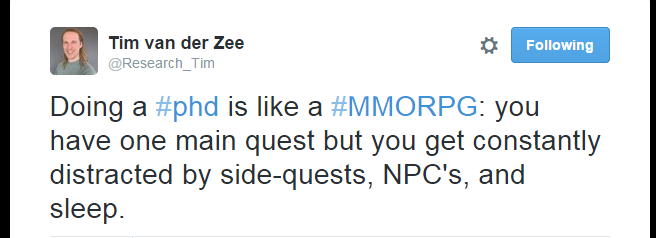

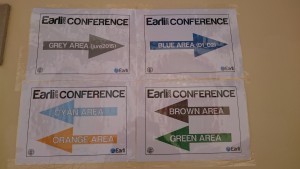
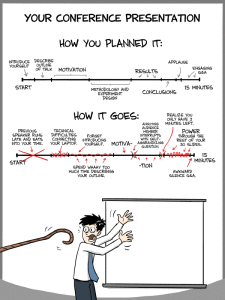
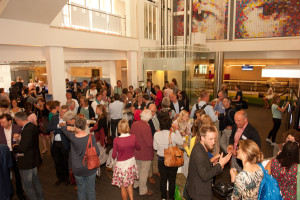 ot only attend presentation sessions. Make sure to have spare time to talk to other researchers. Making new contacts and maintaining ‘old’ ones is at least as important at a conference as exchanging information during sessions. Most of the times the scheduled breaks are too short for this. So, be spontaneous, decide suddenly to skip a session, grab a cup of coffee and see who you end up talking to. Sometimes at these, more quiet moments, you make really good contacts!
ot only attend presentation sessions. Make sure to have spare time to talk to other researchers. Making new contacts and maintaining ‘old’ ones is at least as important at a conference as exchanging information during sessions. Most of the times the scheduled breaks are too short for this. So, be spontaneous, decide suddenly to skip a session, grab a cup of coffee and see who you end up talking to. Sometimes at these, more quiet moments, you make really good contacts!
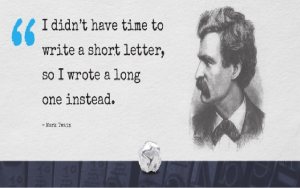 a. Delete articles, adverbs, adjectives, connectives, propositions, and auxiliary verbs
a. Delete articles, adverbs, adjectives, connectives, propositions, and auxiliary verbs

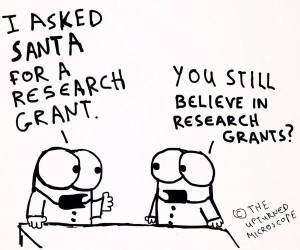
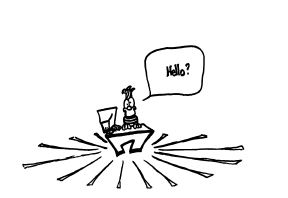
Recent Comments